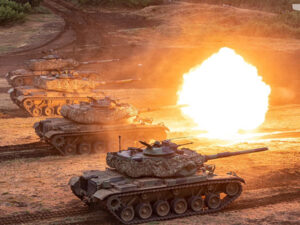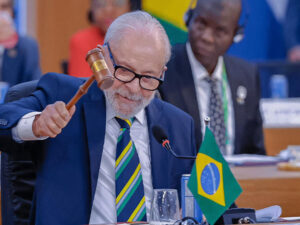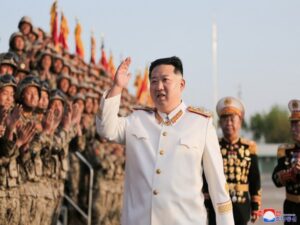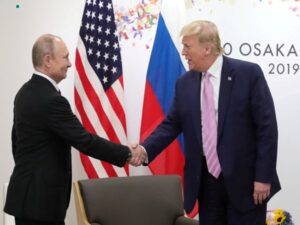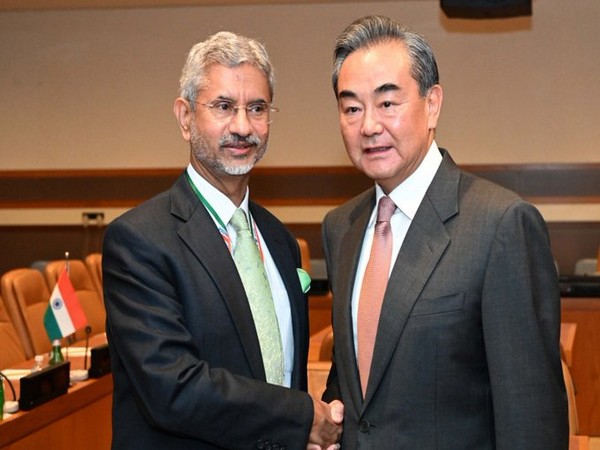
Moscow [Russia], September 11 (ANI): External Affairs Minister S Jaishankar met his Chinese counterpart Wang Yi on Thursday in Moscow on the sidelines of the Shanghai Cooperation Organisation (SCO) meeting to discuss developments in the India–China border areas as well as on India–China relations.
According to a joint press statement, “Both the Ministers had a frank and constructive discussion on the developments in the India–China border areas as well as on India–China relations.”
“The two Ministers agreed that both sides should take guidance from the series of consensus of the leaders on developing India–China relations, including not allowing differences to become disputes,” it read.
They also agreed that the current situation in the border areas is not in the interest of either side. “They agreed therefore that the border troops of both sides should continue their dialogue, quickly disengage, maintain proper distance and ease tensions.”
The statement further read, “The two Ministers agreed that both sides shall abide by all the existing agreements and protocol on China–India boundary affairs, maintain peace and tranquillity in the border areas and avoid any action that could escalate matters.”
“The two sides also agreed to continue to have dialogue and communication through the Special Representative mechanism on the India–China boundary question. They also agreed in this context that the Working Mechanism for Consultation and Coordination on India–China border affairs (WMCC) should also continue its meetings,” the statement said.
Further, the Ministers agreed that as the situation eases, the two sides should expedite work to conclude new Confidence Building Measures to maintain and enhance peace and tranquillity in the border areas. (ANI)
India China reach five-point consensus after talks, says Chinese foreign ministry
After a two-hour-long meeting between Indian and Chinese foreign Ministers in Moscow, the two sides have reached a five-point consensus regarding the current situation after a full in-depth discussion, says a statement issued by Chinese Foreign Ministry.
“Wang outlined China‘s stern position on the situation in border areas, emphasising that the imperative is to immediately stop provocation such as firing and other dangerous situation that violate the commitments made by the two sides,” said the Chinese Foreign Ministry.
“It is also important to move back all personal and equipment that have trespassed, the frontier troops must quickly disengage so that situation may de-escalate,” the statement further said.
China further emphasised that it is willing to support enhanced dialogue between the frontier troops on both sides to resolve specific issues.
The statement read, “The Chinese side will stay in touch with the Indian side through diplomatic and military channels and be committed to restoring peace and tranquillity in the border areas.”
The statement issued by China after talks also highlighted points made by the Indian side.
“The Indian side does not consider the development of India–China relations to be dependent on the settlement of the boundary question and India does not want to go backwards. The Indian side is prepared to work with China to ease tension on the border through dialogue and negotiation and to restore and maintain peace and tranquillity in the border areas,” said the Foreign Ministry.
Discuss current tensions in border areas
External Affairs Minister (EAM) S Jaishankar held a detailed discussion with the State Councillor and Foreign Minister of China Wang Yi in Moscow on Thursday on the current tensions in the India–China border areas. The meeting lasted two-and-a-half hours.
According to government sources, Jaishankar said that as the recent incidents in eastern Ladakh have inevitably impacted the development of the bilateral relationship, an urgent resolution of the current situation was in the interest of both nations.
“EAM underlined that since the resumption of Ambassadorial level relations in 1976 and holding of boundary talks since 1981, India–China relations have developed on a largely positive trajectory. While there have been incidents from time to time, peace and tranquillity have largely prevailed in the border areas. As a result, India–China cooperation also developed in a broad range of domains, giving the relationship a more substantive character,” the sources said.
They further said, “While the Indian side recognised that a solution to the boundary question required time and effort, it was also clear that the maintenance of peace and tranquillity on the border areas was essential to the forward development of ties. The recent incidents in eastern Ladakh, however, inevitably impacted the development of the bilateral relationship. Therefore, an urgent resolution of the current situation was in the interest of both nations.”
“In the meeting, the Indian side highlighted its strong concern at the massing of Chinese troops with equipment along the Line of Actual Control (LAC). The presence of such a large concentration of troops was not in accordance with the 1993 and 1996 Agreements and created flashpoints along the LAC. The Chinese side has not provided a credible explanation for this deployment. The provocative behaviour of Chinese frontline troops at numerous incidents of friction along the LAC also showed disregard for bilateral agreements and protocols,” they said.
The sources said that during the meeting the Indian side clearly conveyed that it expected full adherence to all agreements on the management of border areas and would not countenance any attempt to change the status quo unilaterally.
“It was also emphasised that the Indian troops had scrupulously followed all agreements and protocols pertaining to the management of the border areas.”
The sources informed that the Indian side reiterated the immediate need to ensure a comprehensive disengagement of troops in all the friction areas. “That is necessary to prevent any untoward incident in the future. The final disposition of the troop deployment to their permanent posts and the phasing of the process is to be worked out by the military commanders.”
At the end of their discussions, the Ministers reached an agreement on five points that will guide their approach to the current situation, the sources added. (ANI)






